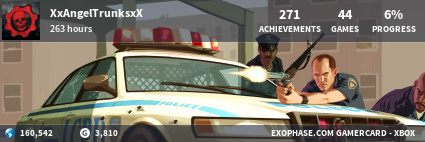Skullwaker said:
I whole heartedly agree with both of you. The industry in its current state is broken, yet it shows so much promise. Why do brilliant games by Atlus or Intelligent Systems barely make their money back but Activision can shit out a Skylanders or CoD every single year and rake in billions?
I know this isn't just a Gen 8 issue, but it feels like we're in a rut. People keep buying the same things every year and it's become apparent to developers that they no longer need to put out complete and enjoyable games in order to be successful. People who preorder blindly are only enabling this behavior; I just wish consumers would take a stand for once. They did it when Microsoft tried to force DRM into the XBO, so why aren't broken games or Day 1 DLC just as big of issues? I don't understand.
|
To 1st question:
CoD or Skylanders appeal to a more broad audience than say, Persona does, and the majority of people who buy a CoD every year know exactly what they are getting; they just don't care. A forum like this filled with gaming enthusiasts makes it seem like we are many, but in reality we are the vocal minority in the large scheme of things and don't speak for everyone. Rich companies don't build games for the minority. Ironically, Activision is a huge company that can take a loss, yet they are the ones playing it safe and sticking to a proven formula; and why would they change? They also have the money to market the shit out of their products, which garners recognition.
To 2nd question:
DRM was a big issue because it pissed off everyone. Microsoft's intentions struck a nerve with consumers, a nerve still tender from the NSA scandals. Day 1 DLC and broken games don't piss everyone off. It is starting to become a larger issue than it was a year ago, and companies are making an effort into solving the problem (see: The Witcher 3; delayed until perfect, all DLC is free) but a lot of individuals are still uninformed consumers. To explain their mentality: It seems easy to pay for a game now instead of later, or to pay incrementally in lead up to a release, and that appeals to many people; as well as the notion that one is guaranteed a copy. What they don't realize is that pre-ordering is like voting for a political representative. You are betting on the promise of what is to come, paying for something that does not exist yet, and in reality do not exactly know what you will receive.








































































